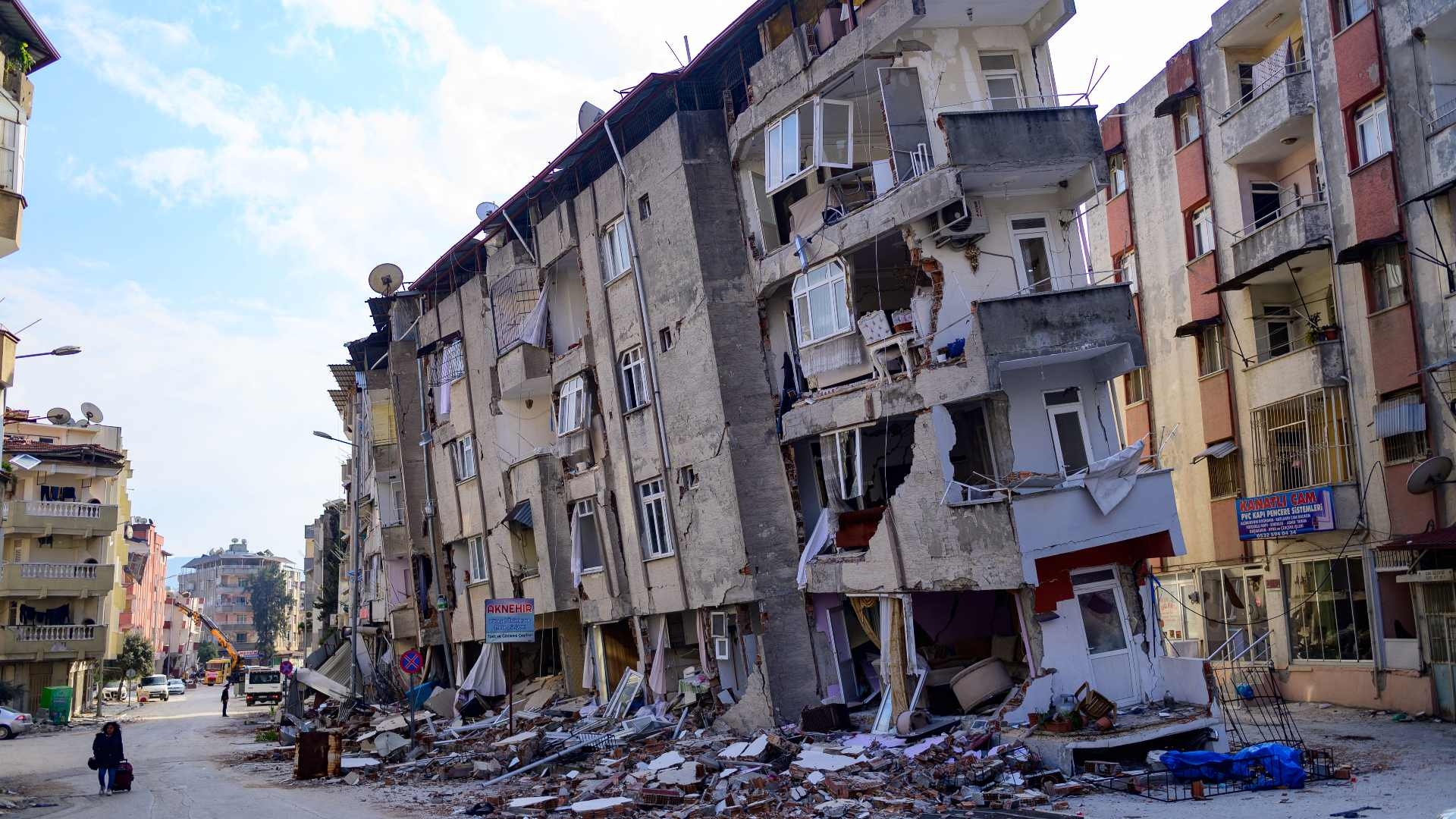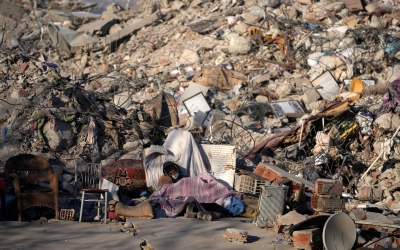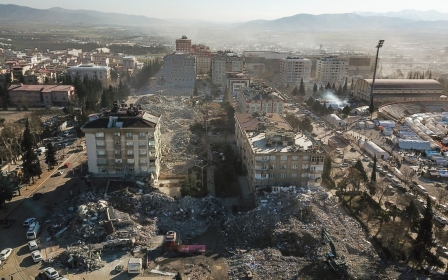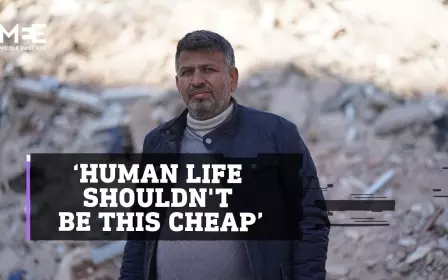Turkey earthquake: World Bank estimated making homes safe would cost $465bn

The World Bank estimated in 2021 that retrofitting or rebuilding millions of residential buildings in Turkey to withstand an earthquake would cost almost half a trillion dollars.
In December 2021, the Washington-based bank, which provides loans and grants to governments, said it was providing the Turkish government with "technical assistance" to help it meet the "massive financing needs" necessary to undertake the urgent work.
The bank warned that "most housing stock in Turkish cities built prior to 2000" was "highly vulnerable to seismic and climate hazards" and required "urgent strengthening".
But it said only about four percent of 6.7 million residential buildings across the country had been updated and estimated the overall cost of the work at $465bn.
"Given the scale of the urban transformation goal, available public funding mechanisms to support resilient retrofitting or reconstruction of housing at risk are not sufficient to meet the massive financing needs," the bank said.
"There is a need to develop additional financing methods to make resilient housing retrofitting and reconstruction accessible to homeowners, especially those belonging to middle- and lower-income groups, so that they too can be a part of the urban transformation process."
Ten provinces in southeastern Turkey have been declared disaster zones following last week's twin earthquakes, in which more than 35,000 people in the country are so far known to have died. It is the deadliest natural disaster in Turkey’s modern history.
According to Turkish government data, more than half of the buildings in the 10 cities worst affected by the disaster were built after 2001. A Turkish business group on Monday estimated the cost of housing loss at more than $70bn.
Turkish President Recep Tayyip Erdogan's government has faced questions over lax enforcement of building standards and a zoning amnesty promoted by Erdogan during a 2019 local elections campaign which legalised buildings erected without proper permits and placed responsibility for earthquake-readiness on property owners.
As part of its assistance, the World Bank organised a "virtual knowledge exchange" linking officials at Turkey's Ministry of Environment, Urbanisation and Climate Change (MoEUCC) with housing ministry officials in Japan working on finance schemes to help property owners there to make their buildings earthquake resilient.
World Bank financing
The World Bank has previously provided financing to Turkey to fund the strengthening of public buildings to withstand earthquakes.
In June 2021 it handed Turkey a $265m loan to strengthen or reconstruct 140 schools, hospitals and other public buildings.
The bank also contributed financing to a $550m project known as Istanbul Seismic Risk Mitigation Project (ISMEP), which ran between 2004 and 2015 to upgrade public buildings in Turkey’s largest city to withstand the shock of earthquakes.
But in a report on that project in 2018, the bank's International Evaluation Group said that "private housing risk reduction" had been dropped from its scope because of Turkish government concerns about subsidising the private sector.
It said: "The appetite at the time from central government for financing support for private housing retrofits was mixed, based on concerns about the appropriateness of using public funds and international financing to effectively subsidise private assets."
In a footnote, the evaluators added: "A lack of support from Treasury for spending public resources on private housing was the proximate cause of dropping the planned component."
In the same report, however, the evaluators said that the World Bank’s role in providing support for private housing projects was "not clear".
It said: "Some argue that the Bank should stay out of private sector real estate or have a very high threshold for engaging, given that housing is a private good. Any financing from the Bank or IFIs [international financial institutions] is never going to be large relative to the scale of investments needed for private housing retrofits. It is difficult for the Bank to engage on the policy side without a strong domestic champion. The topic is difficult to work on given powerful and well connected economic interests in the construction sector."
More recently, the Turkish government has intervened more directly in the private housing sector. In 2020 it announced a plan to provide record low mortgage rates to support the sector during the pandemic, with house sales surging by 50 percent in a week.
The World Bank last week pledged $1.78bn in assistance to help relief and recovery efforts in Turkey and said it had commenced "a rapid damage assessment to estimate the magnitude of the disaster and identify priority areas for recovery and reconstruction support".
Middle East Eye delivers independent and unrivalled coverage and analysis of the Middle East, North Africa and beyond. To learn more about republishing this content and the associated fees, please fill out this form. More about MEE can be found here.





